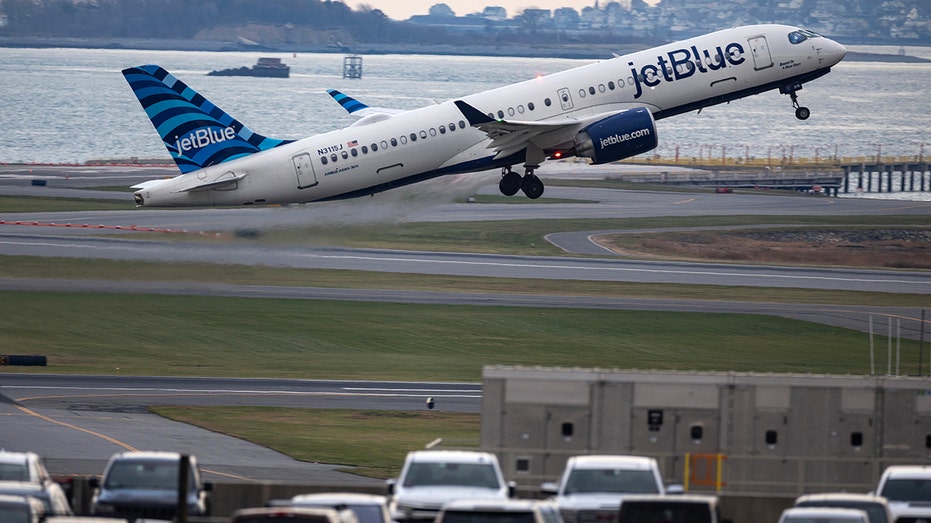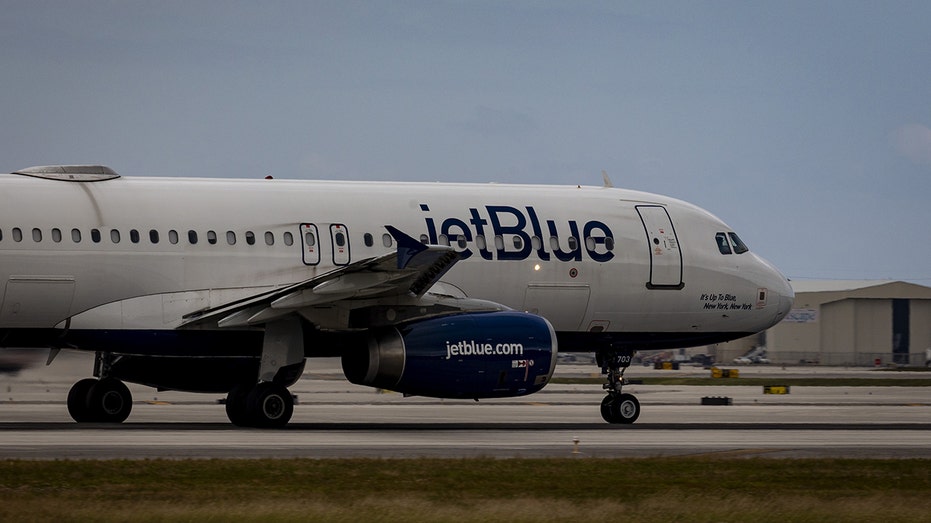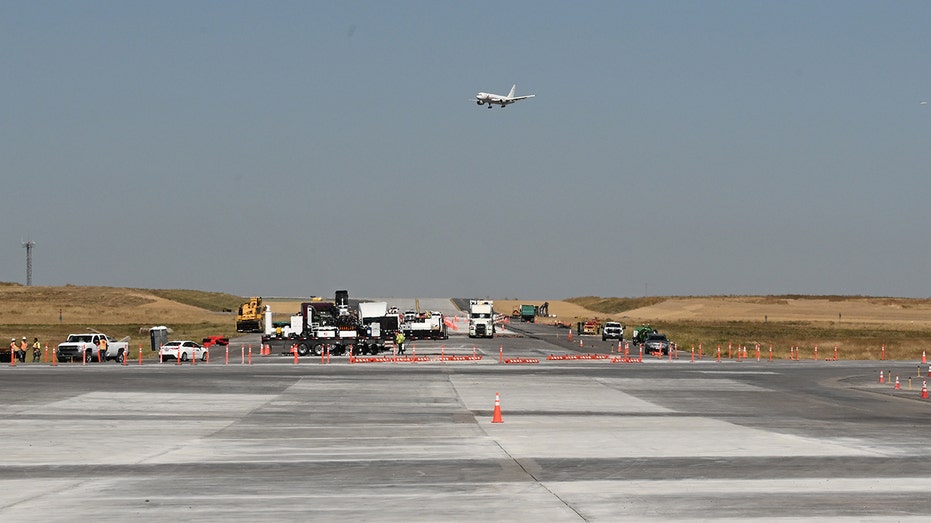Planes narrowly avoid collision on runway in Colorado after pilot's last-second maneuver: video
Beechcraft B300 King Air and a JetBlue Airbus A320 nearly collided on runway 10 at Yampa Valley Airport (HDN) in Hayden, Colorado, in 2022
JetBlue plane scrapes tail while averting collision at Colorado airport
A JetBlue plane at Yampa Valley Regional Airport in Hayden, Colorado, scraped its tail while performing an emergency takeoff to avoid a head-on collision. Footage shows the plane taking off on Jan. 22, 2022. (NTSB via Storyful)
A quickly thinking airplane captain narrowly avoided a head-on crash at an airport in Colorado last year after unclear communication between two aircraft and the traffic control center resulted in one plane taking off and the other landing on the same runway at the same time, a new report found.
"I hope you don’t hit us," the captain of Beechcraft B300 King Air said, according to a new report from the National Transportation Safety Board (NTSB) released Wednesday. The comment came as the captain was landing on runway 10 at Yampa Valley Airport (HDN) in Hayden at the same time JetBlue Airbus A320 was departing from the same runway.
Flight data showed the two planes were approximately 2.2 miles apart when the incident took place, the NTSB's final report said.
The final report released Wednesday culminated a nearly yearlong investigation of the incident that happened on Jan. 22, 2022, when JetBlue Airways flight 1748 incurred a tail strike on its takeoff from runway 10, resulting in substantial damage to the airplane.
CARGO PILOT UNABLE TO REIN IN ESCAPED HORSE ON PLANE, FORCING RETURN FLIGHT TO JFK AIRPORT

Video of the takeoff appears to show the plane entering into a steep ascent, with the back of the plane hitting the ground. (Stan Grossfeld/The Boston Globe via Getty Images / Getty Images)
No one was injured during the incident, and the NTSB determined the tail strike as an accident.
Video of the takeoff appears to show the plane entering into a steep ascent, with the back of the plane hitting the ground.
On Jan. 22, 2022, both aircraft coordinated with the Denver air route traffic control center (ARTCC) for their respective flight plans, the report found.
According to the report, the JetBlue aircraft believed King Air was several miles out and was intending to land on runway 10 behind them, allowing them to think they had clearance to continue with their departure.
King Air, mentioning both "runway 28" and "runway 10" in communications, was actually intending to land on the runway in front, and needed the runway clear to do so.

The JetBlue captain, who had over 11,000 flight hours at the time of the incident, and his co-pilot, who had 3,300 hours at the time of the incident, claim they never saw the other plane during the otherwise routine takeoff. (Eva Marie Uzcategui/Bloomberg via Getty Images / Getty Images)
TSA PREDICTS RECORD-BREAKING HOLIDAY TRAVEL SEASON: 'PACK YOUR PATIENCE'
At the same time King Air was intending to land, the JetBlue aircraft resumed its procedural departure, getting approval from Denver ARTCC and also announcing on common traffic advisory frequency (CTAF) that they were leaving the ramp area and were taxiing to runway 10 for departure.
The Universal Communications Frequency (UNICOM) operator warned both aircraft about "multiple aircraft" near the airport.

The JetBlue flight crew, destined for Florida, soon reported the tail strike and landed at Denver International Airport, following procedure to land as soon as possible to assess possible damage. (RJ Sangosti/MediaNews Group/The Denver Post via Getty Images / Getty Images)
The JetBlue captain, who had over 11,000 flight hours at the time of the incident, and his co-pilot, who had 3,300 hours at the time of the incident, claim they never saw the other plane during the otherwise routine takeoff.
He then proceeded with a hasty takeoff to get out of the way of the plane he thought was coming behind them.
CLICK HERE TO GET THE FOX NEWS APP
Upon seeing the mistake, the captain raised the nose of the aircraft more quickly than normal "due to his surprise about encountering head-on landing traffic." The plane exceeded its pitch limit, which caused the tail strike.
The JetBlue flight crew, who were destined for Florida, soon reported the tail strike and landed at Denver International Airport, following procedure to land as soon as possible to assess possible damage.
Yampa Valley Regional Airport does not have flight controllers directing traffic, according to local reports. It relies on radio communication between planes and facilities in Denver to coordinate safe travel.
The NTSB determined that there had been poor communication, which resulted in this accidental misunderstanding.




















